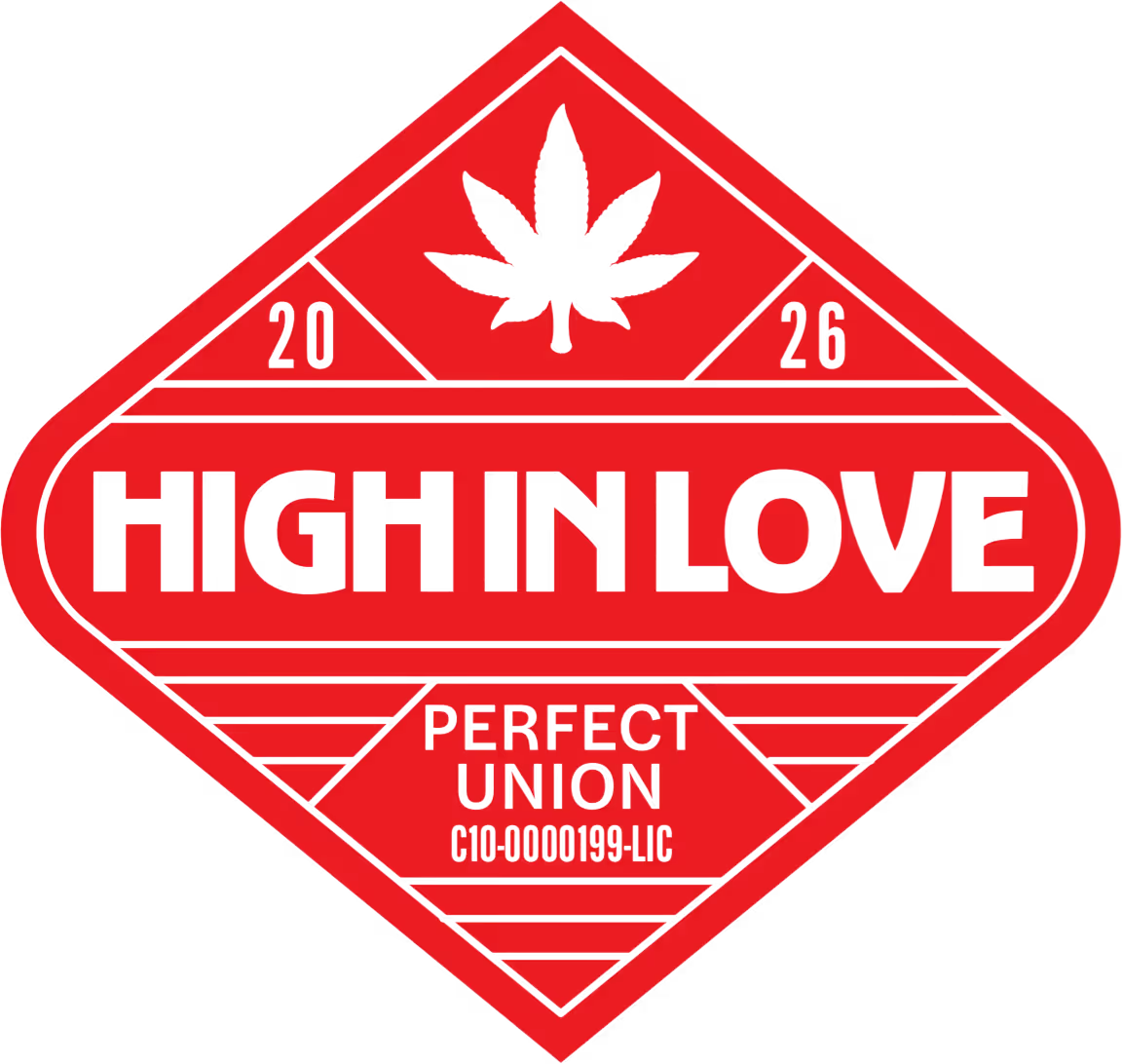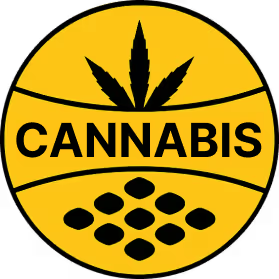.png)
DAILY DEALS
Friendly budtenders
HUGE SELECTION
TOP BRANDS
DAILY DEALS
50% Off FUN FRIDAYS
THC-INFUSED BEATS
100% VIBE-TESTED
THC-INFUSED BEATS
100% VIBE-TESTED
THC-INFUSED BEATS
100% VIBE-TESTED
THC-INFUSED BEATS
100% VIBE-TESTED
THC-INFUSED BEATS
100% VIBE-TESTED
THC-INFUSED BEATS
100% VIBE-TESTED
THC-INFUSED BEATS
100% VIBE-TESTED
DAILY DEALS
Friendly budtenders
HUGE SELECTION
TOP BRANDS
DAILY DEALS
50% Off FUN FRIDAYS
THC-INFUSED BEATS
100% VIBE-TESTED
THC-INFUSED BEATS
100% VIBE-TESTED
THC-INFUSED BEATS
100% VIBE-TESTED
THC-INFUSED BEATS
100% VIBE-TESTED
THC-INFUSED BEATS
100% VIBE-TESTED
THC-INFUSED BEATS
100% VIBE-TESTED
THC-INFUSED BEATS
100% VIBE-TESTED

California has been at the forefront of cannabis legislation, recognizing the importance and benefits of marijuana for both medical and recreational use. Proposition 215, introduced in 1996, marked a significant turn by allowing patients with a valid recommendation from a physician to possess and cultivate marijuana for personal medical use without facing criminal charges, thus paving the way for the Compassionate Use Act. Fast forward to 2016, and Proposition 64 further liberalized cannabis use by legalizing recreational marijuana, underpinning the establishment of the Medical and Adult-Use Cannabis Regulation and Safety Act (MAUCRSA), which unified the regulatory framework for both recreational and medicinal marijuana. This progressive stance on cannabis opens up discussions on how to get a medical card in California, especially for those looking to explore the options available at weed dispensaries.
Understanding the nuances between recreational and medicinal cannabis use in California is crucial for anyone seeking to navigate the state’s legal cannabis landscape. MAUCRSA not only created a combined regulatory system but also posed new questions about the need and benefits of holding a Medical Marijuana Identification Card, even with recreational marijuana being decriminalized. For individuals pondering over how to get a medical card in California, it’s important to look into the distinctive advantages that a Medical Marijuana Identification Card offers, particularly when visiting weed dispensaries.
Understanding California’s Cannabis Laws
California’s approach to cannabis, both medicinal and recreational, is governed by a set of laws and programs designed to regulate its use. Here’s a closer look at the key aspects:
Medical Marijuana Identification Card Program (MMICP):
- Managed by the California Department of Public Health (CDPH).
- Verifies the validity of a patient or caregiver’s MMICP for possession, growth, transport, and use of medical marijuana within California.
Legal Age and Restrictions:
- Cannabis is legal for those 18+ with a physician’s recommendation and 21+ for adult use.
- Usage is restricted on public property, near schools, day care centers, youth centers, and federal lands.
- Home cultivation is allowed up to 6 plants, adhering to local laws.
Regulatory and Business Guidelines:
- Cannabis retailers require a license from the Department of Cannabis Control (DCC).
- The Medicinal and Adult Use Cannabis Regulation and Safety Act (MAUCRSA) is the primary statute for cannabis businesses, outlining application, operation, and enforcement rules.
- Equity ordinances exist in some areas to support those negatively impacted by previous drug policies.
These frameworks ensure the responsible use and distribution of cannabis while supporting public health and safety initiatives within California.
Recreational vs. Medical Cannabis in California
In California, the landscape of cannabis consumption is delineated between recreational and medical use, each with its distinct regulations and benefits.
Eligibility and Access:
- Individuals aged 21 and over can freely purchase recreational weed using a valid form of identification, such as a driver’s license or passport.
- Those between 18 and 20 require a medical marijuana card to buy cannabis, highlighting a critical access point for younger consumers.
Benefits of a Medical Marijuana Card:
- Cardholders can purchase more cannabis, access delivery services statewide, and enjoy lower costs due to reduced taxes.
- A medical card allows possession of larger quantities of marijuana and grants reciprocity in most medical marijuana states, offering discounts and broader access.
Medical vs. Recreational Cannabis:
- Medical cannabis, often higher in CBD, targets ailments like glaucoma and anxiety, whereas recreational weed, higher in THC, is sought for the euphoria it induces.
- Medical patients have access to specific strains and products unavailable to recreational users, emphasizing the tailored nature of medical cannabis consumption.
Here are some of the benefits of recreational vs. medical cannabis purchasing:

Benefits of Holding a Medical Marijuana Identification Card
Holding a Medical Marijuana Identification Card (MMIC) in California comes with a suite of benefits that enhance both the accessibility and affordability of cannabis for medical use:
Tax Advantages:
- Exemption from California state sales tax on marijuana purchases.
- Overall lower tax rates, with medical users paying between 15% to 19.75% compared to 27.5% to 40.75% for recreational users.
Legal Protections and Access:
- Authorization to carry up to 8oz of flower or concentrate and cultivate up to 12 immature plants.
- Access to exclusive medical dispensaries offering high-potency marijuana and a wider range of cannabis products tailored for specific medical needs.
- Legal shield for possession, cultivation, and use within California.
Additional Perks:
- Fewer age restrictions, allowing California residents to become medical marijuana patients at 18.
- Increased possession and purchase limits, with no set limit on the volume of marijuana one can possess as specified by the physician.
- Priority access to cannabis during shortages and the ability to grow more plants as per the prescription.
Individuals need to present their Medical Marijuana Identification Card before purchasing medical marijuana from a dispensary. However, sometimes exceptions can be made with temporary proof of application, but this varies depending on the dispensary.
How to Obtain a Medical Marijuana Identification Card in California
The process is designed to be straightforward yet thorough, ensuring that only qualified individuals gain access. Here’s a step-by-step guide to navigate this process:
Eligibility and Documentation:
- Age and Condition: Applicants must be diagnosed with a qualifying condition such as chronic pain, cancer, etc. Minors have the eligibility under specific conditions, including lawful emancipation or self-sufficiency status.
- Required Documents: A completed MMIC Application/Renewal form (CDPH 9042), proof of identity (e.g., driver’s license), proof of residency (e.g., utility bill), and written documentation from a physician are mandatory.
Application Process:
- Visit: Go in person to your county office, as MMICs are not available through a doctor’s office.
- Submit: Provide your medical recommendation, a form of government-issued identification, and a document proving residency.
- Fee: The application fee is up to $100, with potential reductions for those who qualify.
Approval and Collection:
- Verification: County offices may take up to 30 days to verify your application details.
- Issuance: Once verified, the MMIC is made available within five days and is valid for one year.
This process, managed by the California Department of Public Health through the MMICP, ensures that both law enforcement and the public can verify the legitimacy of medical marijuana users.
Navigating Cannabis Purchases Responsibly
For those new to the scene or considering how to get a medical card in California several key considerations should be taken in order to make responsible legal purchases. Here are key pointers to ensure a safe and informed experience:
Start Safely:
- Purchase from Licensed Dispensaries: Purchase cannabis from licensed dispensaries. There is a higher chance that licensed establishments sell products that have been tested for potency and contaminants, taking safety into consideration.
- Consultation: A budtender can provide tailored advice on products fitting your needs and experience level, enhancing your visit to a weed dispensary.
- Edible Caution: Edibles’ effects can take 30 minutes to two hours to manifest. It’s crucial to start with a low dose to avoid discomfort.
Storage and Usage:
- Secure Storage: Keep cannabis products in a locked area, away from children and pets, and in child-resistant packaging.
- Health Precautions: Avoid cannabis if pregnant or breastfeeding and refrain from driving post-consumption to mitigate health risks and legal issues.
- Dispose of Waste Properly: It is equally important to throw packaging and waste responsibly, following local guidelines for recycling or disposal.
Awareness:
- Educate yourself: Understand the different strains, types (e.g., flower, edibles, concentrates), and potencies. Learn about the potential side effects and risks associated with each.
- Health Implications: Be mindful of cannabis’s effects on health, particularly for young people or those with mental health or substance use disorders. The smoke from cannabis shares toxins with tobacco smoke, posing lung risks.
- Legal Knowledge: Understanding California’s laws, including cultivation limits and reciprocity laws, ensures compliance and maximizes the benefits of holding a Medical Marijuana Identification Card.
FAQs
What distinguishes a Medical Marijuana Identification Card (MMIC) from a doctor’s medical marijuana (MMJ) recommendation?
The primary distinction between an MMIC and a doctor’s MMJ recommendation is that MMIC patients are listed in a state-managed database, whereas having a cannabis recommendation does not require such registration. However, both documents offer legal protections that are not available to individuals who only use marijuana recreationally.
When was the Medical Marijuana Identification Card system established in California?
California pioneered the medical marijuana card system with the passage of Proposition 215 in 1996, also known as the Compassionate Use Act, which was further solidified by Senate Bill 420 in 2003. Proposition 215 grants individuals the right to obtain and use marijuana for medical purposes, provided they have a doctor’s recommendation.
How quickly can I expect to receive my medical marijuana recommendation from NuggMD?
The medical cannabis evaluation with NuggMD typically takes between 15-20 minutes for most applicants. Once approved, you will receive a digital PDF version of your medical marijuana recommendation via email within minutes, and the official paper copy will be mailed to you, arriving within 3-7 business days, depending on your location in California.
How long is a medical cannabis card valid?
Medical cannabis cards are usually good for one year. Afterwards individuals can renew their cards by completing a renewal application form and obtaining a new medical recommendation.
Can I use my medical cannabis card in other states?
Some states have reciprocity laws recognizing out-of-state medical cannabis cards. Before heading to that state make sure you are aware and understand the specific regulations before using your card outside of California.
How much cannabis can I legally purchase at one time?
Purchases are limited by jurisdiction and depend on whether you are purchasing for medical or recreational use. Amounts are specified in terms of quantity (e.g., ounces or grams) and may vary according to product types.
Disclaimer: the information provided in this document is for informational purposes only and is not intended as a substitute for professional medical advice, diagnosis, or treatment
Disclaimer: the information provided in this document is for informational purposes only and is not intended as a substitute for professional medical advice, diagnosis, or treatment.




.svg)




.avif)





.avif)




.svg)


.svg)
.avif)